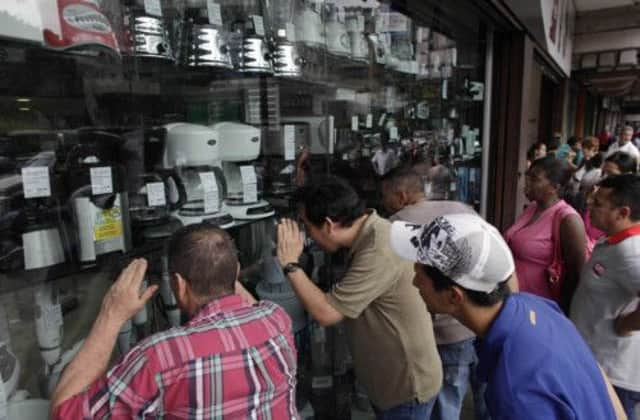Venezuela: State imposes price controls


The products will join commodities such as petrol and lavatory paper on the list of goods whose rates are dictated by the government in its fight against the “economic warfare” it says is being waged against Venezuela.
After spending five hours in line to buy a top-end refrigerator for the equivalent of £86 yesterday, Ever Ramirez said: “You can find anything you want in Venezuela, but you pay extremely high prices in order to get it.
Advertisement
Hide AdAdvertisement
Hide Ad“But today we have the chance to buy at prices we can afford, so I’m going to get what I want before Venezuela doesn’t have any more refrigerators.”
The government’s method of forcing its “socialist prices” on to independent businesses has been to arrest the managers and have the military seize shops. The continued profits will be absorbed in “back taxes”.
But the military’s failure to seize stores effectively has resulted in widespread looting. In shops where the military has taken over, gun-wielding soldiers organise queues outside; inside there is chaos. In one store, people milled around the televisions – employees who are losing their jobs have been permitted to take large “tips” for selling 50-inch flatscreen sets.
“We are going to control how much money a businessman can make from selling his imported goods,” said president Maduro on Monday in an announcement seen as electioneering before next month’s nationwide congressional polls. “We cannot give in to the parasitical dollar.”
However, the Venezuelan government can little afford to be discouraging private business. The market’s starvation of US dollars, lack of imports and unbacked newly-printed currency injections have resulted in an inflation rate of 54.3 per cent, the highest since records began.
Its coffers full enough to ignore the fact that a bottle of beer costs on average five times more than 80 litres of petrol (the former’s price not being controlled by the state), the government’s further commercial controls are likely to have a serious effect on the ongoing shortages.
“If the government forces a private businessman to sell a TV at less than what it cost him to supply it, he will not do business in Venezuela,” said Nelson Perez, president of the Caracas School of Economists. “That’s simple economics – but the government can afford to ignore that.”
Venezuela’s needs now stand at 23 per cent on the international shortage index. The most recent commodities to be added have been church wine, newsprint and school textbooks.
Advertisement
Hide AdAdvertisement
Hide Ad“It’s a farce,” said Soraida Gonzalez, who emerged empty-handed from the military-seized Daka store in the Bello Monte district of Caracas. “The government can preach all the beautiful socialist ideology it wants, but you can’t argue with the fact that we can’t get what we need to feed our families.
“If you want one of the 52-inch flatscreen TVs, the soldiers will take a massive bribe off you to carry it out of the door. Some things won’t ever change”.